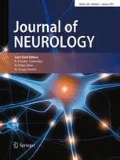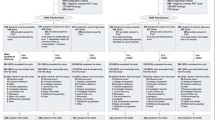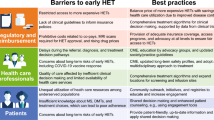Abstract
Rituximab, a monoclonal antibody to CD20, is an effective treatment for relapsing remitting multiple sclerosis (MS) reducing relapse rate by at least 50% over time. Although the mechanism for this clinical benefit is unclear, rituximab depletes circulating B cells, which can perform antigen presentation and stimulation of T cells. Another anti-CD20 drug, ocrelizumab, has recently been FDA approved to treat both relapsing remitting and progressive forms of MS. While long-term effects of ocrelizumab use are essentially unknown, long-term use of rituximab has been associated with the development of progressive multifocal leukoencephalopathy (PML) at an incidence of approximately 1/25,000 in non-MS conditions. Serostatus for JC virus (JCV), the causative agent for PML, is an important risk stratification tool for natalizumab, but its utility in other MS treatments is uncertain. We found that rituximab use was associated with a reduction in JCV antibody index values in MS patients. Reductions in immunoglobulins, IgM in particular, are seen in concert with JCV antibody reductions. Physicians should exercise caution when using JCV antibody indices to assess any risk of PML for patients on rituximab.


Similar content being viewed by others
References
Gürcan HM, Keskin DB, Stern JN, Nitzberg MA, Shekhani H, Ahmed AR (2009) A review of the current use of rituximab in autoimmune diseases. Int Immunopharmacol 9(1):10–25
Monson NL, Cravens PD, Frohman EM, Hawker K, Racke MK (2005) Effect of rituximab on the peripheral blood and cerebrospinal fluid B cells in patients with primary progressive multiple sclerosis. Arch Neurol 62(2):258–264
Duddy M, Bar-Or A (2006) B-cells in multiple sclerosis. Int MS J 13:84–90
Hauser SL, Waubant E, Arnold DL et al (2008) B-cell depletion with rituximab in relapsing-remitting multiple sclerosis. N Engl J Med 358(7):676–688
Hauser SL, Bar-Or A, Comi G et al (2017) Ocrelizumab versus interferon beta-1a in relapsing multiple sclerosis. N Engl J Med 376(3):221–234
Montalban X, Hauser SL, Kappos L et al (2017) Ocrelizumab versus placebo in primary progressive multiple sclerosis. N Engl J Med 376(3):209–220
Clifford DB, Ances B, Costello C, Rosen-Schmidt S, Andersson M, Parks D, Perry A, Yerra R, Schmidt R, Alvarez E, Tyler KL (2011) Rituximab-associated progressive multifocal leukoencephalopathy in rheumatoid arthritis. Arch Neurol 68(9):1156–1164
Tan CS, Koralnik IJ (2010) Progressive multifocal leukoencephalopathy and other disorders caused by JC virus: clinical features and pathogenesis. Lancet Neurol 9(4):425–437
Mills EA, Mao-Draayer Y (2018) Understanding progressive multifocal leukoencephalopathy risk in multiple sclerosis patients treated with immunomodulatory therapies: A bird’s eye view. Front Immunol 9:138
Trampe AK, Hemmelmann C, Stroet A, Haghikia A, Hellwig K, Wiendl H, Goelz S, Ziegler A, Gold R, Chan A (2012) Anti-JC virus antibodies in a large German natalizumab-treated multiple sclerosis cohort. Neurology 78(22):1736–1742
Friedman-Urevich S, Gottesman M, Farley S (2017) Longitudinal changes in jcv titers in multiple sclerosis patients treated with rituximab, fingolimod, and dimethyl fumarate. Abstract, CMSC New Orleans
Raffel J, Gafson AR, Malik O, Nicholas R (2015) Anti-JC virus antibody titres increase over time with natalizumab treatment. Mult Scler 21(14):1833–1838
Roberts DM, Jones RB, Smith RM, Alberici F, Kumaratne D, Burns S.,Jayne D (2015) Rituximab-associated hypogammaglobulinemia: incidence, predictors and outcomes in patients with multi-system autoimmune disease. J Autoimmun 57:60–65
Kim SH, Jeong IH, Hyun JW, Joung A, Jo HJ, Hwang SH, Yun S, Joo J, Kim HJ (2015) Treatment outcomes with rituximab in 100 patients with neuromyelitis optica: influence of FCGR3A polymorphisms on the therapeutic response to rituximab. JAMA Neurol 72(9):989–995
Author information
Authors and Affiliations
Corresponding author
Ethics declarations
Conflicts of interest
UB, AB, and EE have no conflict of interest to declare. JAS has served as a consultant for Biogen, Serono, Genzyme, Genetech, and Teva. JAS has grant funding from Biogen and Genzyme.
Ethical standard
All procedures performed in studies involving human participants were in accordance with the ethical standards of the institutional research committee and with the 1964 Helsinki Declaration and its later amendments or comparable ethical standards.
Rights and permissions
About this article
Cite this article
Baber, U., Bouley, A., Egnor, E. et al. Anti-JC virus antibody index changes in rituximab-treated multiple sclerosis patients. J Neurol 265, 2342–2345 (2018). https://doi.org/10.1007/s00415-018-8996-3
Received:
Revised:
Accepted:
Published:
Issue Date:
DOI: https://doi.org/10.1007/s00415-018-8996-3




